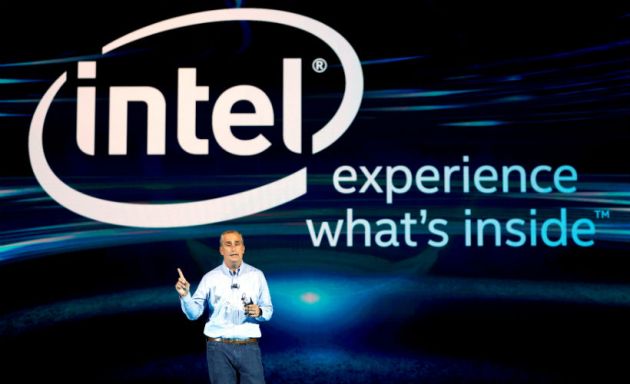CES 2018: The top highlights from Intel’s keynote in Las Vegas
At CES 2018, Intel CEO Brian Krzanich gave a keynote address, talking about the latest innovations the company is working on. He also addressed the Meltdown, Spectre issues.
 1 / 10
1 / 10Intel CEO Brian Krzanich delivered a keynote address at CES 2018. Krzanich took the address as an opportunity to show how Intel visualises data as the future. The address was Intel's platform to showcase its latest advancements in the fields of virtual reality, quantum computing, data storage. He also addressed the issue around Meltdown and Spectre vulnerability in his 90 minute keynote address. According to the Intel CEO, the company was working to issue a fix to all processors by end of January 2018. (Image Source: Reuters)
You have exhausted your
monthly limit of free stories.Read more stories for free
with an Express account.Already have an account? Sign InThis story requires a subscriptionSelect a plan and use IE10 code to get 10% extra offAlready a subscriber? Sign inThis story requires a subscriptionSelect a plan and use IE10 code to get 10% extra offThis content is exclusive for our subscribers.Subscribe now to get unlimited access to The Indian Express exclusive and premium stories.Already a subscriber? Sign In- 2 / 10
Intel CEO Krzanich first introduced their virtual reality innovations to the audience. He announced Intel's partnership with the upcoming Winter Olympics in South Korea, which will be the first sporting event to be covered by Intel's VR technology. (Image source: Nandagopal Rajan)
- 3 / 10
Through Intel's VR experience, Krzanich explained that sports fans would be able to experience the game from any preferred angle. Intel's Immersive Media Technology will offer data collection through various high-definition cameras, set to allow perspective on their favourite events. (Image Source: AP)
- 4 / 10
Brian Krzanich also announced a partnership with Paramount, claiming that they could redefine how movies were made. Introducing the concept of Voxels, the 3D counterpart of the Pixel, Krzanich explained how volumetric video could be made by using the depth and volume of each Voxel. This, with multiple camera angles, will add greater dimensions to movie viewing, claimed Krzanich.
- 5 / 10
Intel also clarified its stance on the Metldown and Spectre vulnerabilities, saying that the fix would be made available by the end of January.
- 6 / 10
Shifting the emphasis to data, Intel's Krzanich claimed that by 2020, every person would be generate 1.5GB of data per day, while airplanes could generate as much as 40TB daily. In such a world, the CEO claimed that data needs to 'flow', and said the increase from data across AI, VR and other collection points cannot be stored in a stationary form. (Image source: Nandagopal Rajan)
- 7 / 10
Intel's data argument was further broadened, when Krzanich brought on the topic of quantum computing. The newest form of computing, that stores data in a non-binary form, is an area of increasing interest ,as Intel looks to expand outside its primary PC market. (Image Source: Reuters)
- 8 / 10
In this regard, Intel has shown a quantum chip, called Tangle Lake, having a 49 qubit capacity. A qubit is the quantum computer equivalent of a regular computer bit, the basic information storage unit. (Image source: Nandagopal Rajan)
- 9 / 10
Artificial intelligence is also of concern to Intel, as Brian Krzanich showed by introducing Loihi, its first AI-based chip. Loihi has been termed as a 'neuromorphic chip', with the ability to mimic the human brain's thoughts and functions. (Image Source: AP)
- 10 / 10
The Intel keynote also saw the demonstration of the Volvocopter. The autopilot device, capable of seating one person. This is Intel's push towards autonomous technology. Intel will pit the German-made Volvocopter against Uber's 'flying cabs', and developments being made in air-based autonomous travel. (Image Source: Reuters)